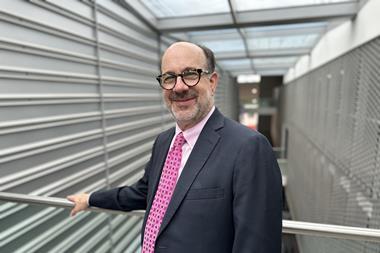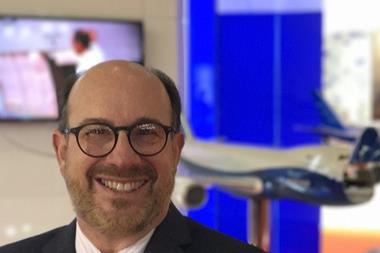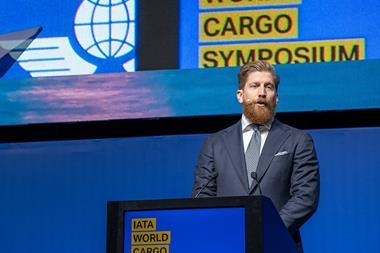Advocating for the airforwarding industry is no simple task in the US government’s legislation arena, as Brandon Fried, executive director of the Airforwarders Association (AfA) explains.
Taking action on key air cargo issues is vital for the air cargo industry to protect its own interests in a world where it is often misunderstood, says Fried.
The lobbyist is speaking from experience as an industry veteran at US Government headquarters in Washington, otherwise known by regulars as “Capitol Hill’ after its location.
“If you don't solve your problems, government will step in and solve them for you,” says Fried. “And it’s never a good result.”
He adds: “In Washington, one of the things I learned early on is it’s not about what gets done as much as what didn't get done that was proposed and that you put a stop to.
“A lot of laws are passed by people who know nothing about your industry. I've heard of some outrageous ideas.”
He says the air cargo industry should learn from government intervention in maritime decarbonisation and propose and undertake initiatives that best serve the industry before regulators do it for them, he says.
“I've learned if you're not at the table in Washington, you're on the table. And you don't want to be on their menu. You want to be there advocating for your industry.
“I think the lesson that the aviation industry should learn is they don’t want lawmakers making policy for us."
Talking about air cargo policy is second nature for Fried.
He has now spent 40 years in the industry and 17 years leading the AfA, where he advocates for air forwarders with regulatory agencies worldwide and the US Government, plus coordinates with other industry trade groups in furthering awareness and understanding of issues facing air forwarders.
Although he says he “took a wrong turn” and ended up in the airfreight industry by chance, he has been passionate about aviation from his youth.
“I love aeroplanes. I love the look, their capabilities, the speed, the excitement,” he says. “The spontaneity of working with airlines just excites me.”
Policy is also a longstanding interest for Fried. He studied Policy Studies and Public Policy Analysis at Syracuse University from 1975-79.
Having started his career in sales in Los Angeles, he then spent 25 years working at global freight forwarder Adcom Worldwide’s Washington office, first as station manager from 1980-84, then as owner and chief operating officer of the franchised business until 2005.
Meanwhile, in 2000, he joined the AfA and was elected as chairperson in 2001, after which he served for two consecutive terms.
In August 2005, after selling his Adcom business, he began consulting air cargo companies on business strategy and management practices until his appointment as executive director of the AfA in November 2005.
Green tide
One of the major topics the AfA is tackling is sustainability and decarbonisation.
It hasn’t gone unnoticed in the logistics industry that while both the maritime and aviation sectors have been exploring greening operations, the air cargo industry has far to go, particularly in future fuel developments.
Importantly, it is working with limitations related to the weight of and distances travelled by freighters.
It’s not because the maritime sector is more self-driven that it has come on leaps and bounds in decarbonisation, but that it has been pushed by top-down legislation, says Fried.
But the tide is now turning for airfreight, so to speak.
Freight forwarding customers are now pushing for a change in attitude to environmental issues and companies are being forced to listen, he explains.
“There's a new breed of customers coming about. They are educated, younger and energised by environmental sustainability, because they're concerned about the planet we're going to leave them with.”
Fried says the AfA is responding to environmental enthusiasm accordingly.
The organisation started an Environmental Sustainability Committee last year that has the backing of young and engaged people who want to see action beyond words to cut emissions.
To tackle climate change and keep global warming to no more than 1.5°C, as set out by the 2015 Paris Agreement defined at the UN Climate Change Conference (COP21) in Paris that same year, the United Nations (UN) says that emissions need to be reduced by 45% by 2030 and reach net zero by 2050.
For airfreight to have a chance of reaching this decarbonisation goal requires cooperation and collaboration within the sector, says Fried.
“It's an ambitious goal. But we all need to work together to even have the slightest possibility of attaining it.”
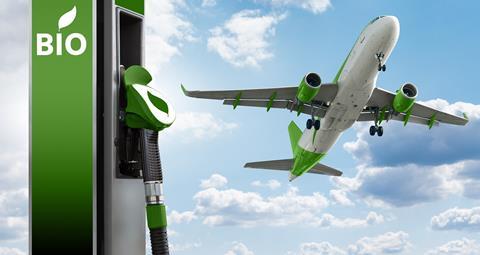
With much noise about Sustainable Aviation Fuel (SAF) being the key future fuel for the industry, the challenge of how to make it cheaper and more accessible continues.
Fried stresses that while airlines are “leading the charge” for adoption of SAF, governments need to step in and help.
“SAF is not readily available on a widespread basis. We're seeing some ambitious steps. Some of our members are buying SAF through the airlines and coming to shippers and offering to book their cargo on a SAF flight.”
But, he adds: “We can't depend on airlines, freight forwarders and fuel providers to do it on their own. The reality is governments need to step up to the plate too.
“They need to provide infrastructure so that we can start manufacturing this type of fuel."
Chronic airport underfunding
Another issue that the AfA is working on is generating more funding for US airports infrastructure to contain and minimise supply chain congestion. In the region of $3-5bn is needed, says Fried.
In October, the AfA and the National Customs Brokers and Forwarders Association of America (NCBFAA) called for a State or Federal-backed ‘Air Cargo Support Fund’ to tackle the infrastructure crisis facing the US air cargo industry.
Fried says that US airports “haven't had a substantial cargo area investment in 40 to 50 years” and partly as a result of this adjoining road infrastructure isn’t set up for the modern trucks being used, meaning there are supply chain delays.
“In the last couple of years, it's no secret that we've had truckers waiting at major US gateway airports sometimes for eight or 10 hours to either drop off cargo or retrieve it.”
This lack of infrastructure investment is in addition to other ongoing airport issues, including staff security processing and attracting ground handlers, exacerbated by the supply chain issues that arose during the pandemic.
Passenger aviation has traditionally been favoured over cargo for funding by the US government, says Fried.
“Cargo is always the ugly stepchild. We're less than 10% of airline revenue, although probably 35% of the value. But governments are not looking at cargo. There's been no substantial spending in a long time.”
Freight forwarders have responded to supply chain congestion by starting to use airports that have more recently entered the air cargo handling space, explains Fried.
“AfA members are starting to charter freighter flights into airports including Rickenbacker in Ohio, Rockford, near Chicago and San Bernardino in California because they were not willing to tolerate those bottlenecks.
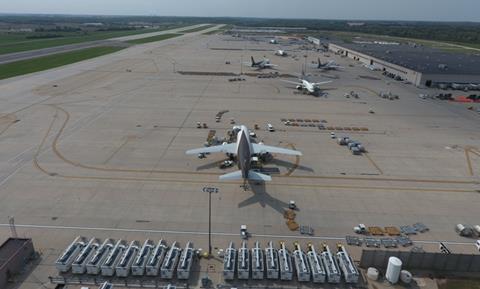
"That's a loss for those local economies around the airport, public workers and businesses that are in existence,” he points out.
The AfA is also heavily involved in the Transport Security Administration’s (TSA) Aviation Security Advisory Committee and its Certified Cargo Screening Program (CCSP) to boost security.
It is also working with the TSA on air cargo process mapping to improve industry efficiency.
Looking to the future
Aside from decarbonisation, Fried believes the biggest challenges include the advancement and adoption of automation and security.
On automation he says: “Freight forwarders have adopted technology for decades now. But the reality is we're adapted to a greater extent than we have in the past.
“Forwarders are going to want to make sure that they have sufficiently adopted automation so they can provide shipment transparency and ease of use to shippers.”
Amongst the biggest security issues facing air cargo, Fried counts the safe transport of lithium batteries as the biggest issue currently.
He says management of the lithium batteries supply chain requires better training and detection. Using detection dogs is a focus for the AfA.
“Lithium batteries are the biggest threat right now. When I look at the volume of poorly manufactured lithium batteries that might be crossing US borders and getting on aeroplanes I start to get extremely concerned.
“Governments are simply not stepping up and making sure that they don't find their way out to the airport.”
There are plenty of challenges for 2023, but Fried anticipates a long future in his current role.
The aspects of his job he enjoys, "spontaneity, the power to drive change, engagement on the legislative and regulatory side, and making a difference”, have ensured his longevity.
“The hard part about running a trade association is driving home at night, not knowing whether you made an impact that day. But if you're able to move the rock a little bit then it’s progress,” he says.










